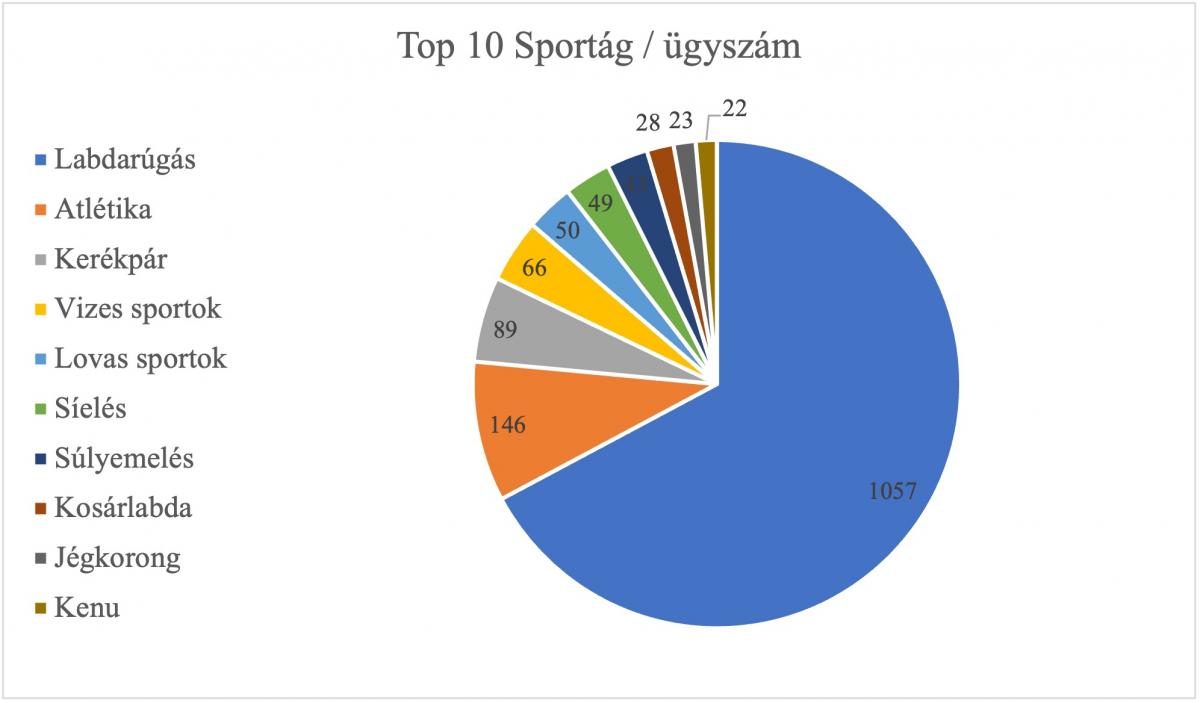Recent developments in the Article 7 proceedings against Hungary and Poland
 On 5 May 2022, the European Parliament called for the Council and the Commission to take more action to address the deterioration of EU values in Hungary and Poland in a resolution adopted with 426 votes to 133 and 37 abstentions. Despite the deteriorating situation in both countries in recent years, member states have thus far avoided voting to determine whether there is “a clear risk of a serious breach” of the EU’s common values. Read more… (Daniel Szilágyi)
On 5 May 2022, the European Parliament called for the Council and the Commission to take more action to address the deterioration of EU values in Hungary and Poland in a resolution adopted with 426 votes to 133 and 37 abstentions. Despite the deteriorating situation in both countries in recent years, member states have thus far avoided voting to determine whether there is “a clear risk of a serious breach” of the EU’s common values. Read more… (Daniel Szilágyi)


 On May 19, 2022, the European Commission decided to initiate an infringement procedure against Hungary, alleging that the given Member State failed to “correctly transpose” Directive (EU) 2017/1371, providing the European Union (‘EU’) rules on the fight against fraud to the Union’s financial interests by means of criminal law, also known as the PIF Directive. Besides Hungary, Estonia, Malta, and the Netherlands also landed in hot water over this issue, upon receiving letters of formal notice assigned with identical reasons, marking the commencement of infringement procedures.
On May 19, 2022, the European Commission decided to initiate an infringement procedure against Hungary, alleging that the given Member State failed to “correctly transpose” Directive (EU) 2017/1371, providing the European Union (‘EU’) rules on the fight against fraud to the Union’s financial interests by means of criminal law, also known as the PIF Directive. Besides Hungary, Estonia, Malta, and the Netherlands also landed in hot water over this issue, upon receiving letters of formal notice assigned with identical reasons, marking the commencement of infringement procedures. 
 From 1 January 2021, a new EU own resource, a contribution based on non-recycled plastic packaging waste was introduced in the European Union’s budget for 2021-2027 as a new source of revenue. The European Union would like to encourage the Member States to reduce packaging waste and, through the implementation of the European Plastics Strategy, to help Europe move towards a circular economy that minimizes the waste and the leakage of resources, emissions, and energy. The question may be how this change will affect the operation of the Union and how it will work in practice.
From 1 January 2021, a new EU own resource, a contribution based on non-recycled plastic packaging waste was introduced in the European Union’s budget for 2021-2027 as a new source of revenue. The European Union would like to encourage the Member States to reduce packaging waste and, through the implementation of the European Plastics Strategy, to help Europe move towards a circular economy that minimizes the waste and the leakage of resources, emissions, and energy. The question may be how this change will affect the operation of the Union and how it will work in practice. 
 For a large part of the year, but especially during the holidays, for many companies or wealthier individuals, it comes to the fore to support initiatives, goals, and organizations which are important to them, with donations and offerings. The charity sector has grown enormous. Many of which see only thats positive side, although it also provides opportunities for tax avoidance, while (under with the law) shortening the budget by significant sums. After all, in most countries, including Hungary, if we donate to a charity, we can describe it from different public charges. It has also been argued that by supporting the charity with various tax technology solutions, the State is giving up the ability to decide on the use of resources democratically (i.e. through the representatives we directly elect). (Klaudia Kitti Gál)
For a large part of the year, but especially during the holidays, for many companies or wealthier individuals, it comes to the fore to support initiatives, goals, and organizations which are important to them, with donations and offerings. The charity sector has grown enormous. Many of which see only thats positive side, although it also provides opportunities for tax avoidance, while (under with the law) shortening the budget by significant sums. After all, in most countries, including Hungary, if we donate to a charity, we can describe it from different public charges. It has also been argued that by supporting the charity with various tax technology solutions, the State is giving up the ability to decide on the use of resources democratically (i.e. through the representatives we directly elect). (Klaudia Kitti Gál) 
 The current form of the Hungarian general practitioner (‘GP’) system is unsustainable, as it is still unable to perform its role as a gatekeeper. Doctors working as retirees, the irreplaceable human resources, unorganized patient pathways, increasing workload, and untapped professional capacity result in a hospital-centric health care system while outpatient and inpatient clinics are unable to perform their original function, and increasing waiting times in all sectors of the sector weaken patients’ confidence in healthcare. On the one hand, these problems raise dilemmas about the inefficient use of public money, on the other hand, the need for an organized integration of private health into the current structure. The state is also working to reduce the growing burden on GPs, however, a lack of experience often gives rise to solutions that tend to escalate the current situation.
The current form of the Hungarian general practitioner (‘GP’) system is unsustainable, as it is still unable to perform its role as a gatekeeper. Doctors working as retirees, the irreplaceable human resources, unorganized patient pathways, increasing workload, and untapped professional capacity result in a hospital-centric health care system while outpatient and inpatient clinics are unable to perform their original function, and increasing waiting times in all sectors of the sector weaken patients’ confidence in healthcare. On the one hand, these problems raise dilemmas about the inefficient use of public money, on the other hand, the need for an organized integration of private health into the current structure. The state is also working to reduce the growing burden on GPs, however, a lack of experience often gives rise to solutions that tend to escalate the current situation. 
 Hungary, too, has accepted the proposal made by the OECD regarding the global minimum tax, which is planned to apply to the taxation of profits of larger multinational companies from 2023 onwards. The goal of the framework signed by 136 countries in Paris is to introduce a universal (minimum) 15% tax for companies with group-wide revenues exceeding 750 million USD. From the beginning, the supporters focused on the fiscal aspects, meanwhile the opposers considered the long-time investment more important. A consensus regarding the framework has been achieved, and while the detailed rules are still being developed, the advantages and disadvantages of the proposal are already clearly visible.
Hungary, too, has accepted the proposal made by the OECD regarding the global minimum tax, which is planned to apply to the taxation of profits of larger multinational companies from 2023 onwards. The goal of the framework signed by 136 countries in Paris is to introduce a universal (minimum) 15% tax for companies with group-wide revenues exceeding 750 million USD. From the beginning, the supporters focused on the fiscal aspects, meanwhile the opposers considered the long-time investment more important. A consensus regarding the framework has been achieved, and while the detailed rules are still being developed, the advantages and disadvantages of the proposal are already clearly visible. 
 With Hungary’s accession to the European Union, the national and European budgets got into considerably closer contact with each other. On the other hand, we should also see and note that after the accession, the practice of budget fraud related to acquisitions within the EU has evolved. These crimes included various VAT-related frauds such as accepting pro forma invoices related to domestic sales activities and other economic activities related to acquisitions and sales within the Community. In the second part of our series on budget fraud in Hungary, we focus on the effective Hungarian regulation.
With Hungary’s accession to the European Union, the national and European budgets got into considerably closer contact with each other. On the other hand, we should also see and note that after the accession, the practice of budget fraud related to acquisitions within the EU has evolved. These crimes included various VAT-related frauds such as accepting pro forma invoices related to domestic sales activities and other economic activities related to acquisitions and sales within the Community. In the second part of our series on budget fraud in Hungary, we focus on the effective Hungarian regulation. 
 The protection of the European Union’s financial interests holds a prominent place within the EU’s institutional framework, as is historically evident from the inclusion in EU primary law of the requirement that Member States ensure their effective protection, equivalent to that reserved for their national counterparts. As regards the Hungarian regulation, on the road leading to the establishment of the legal definition of budget fraud currently in force in the new Criminal Code, the effective protection of the budget of the EU or EC as a need was the most pronounced among the factors which brought about the formulation. In the following, we aim to summarise the outline of the development of budget fraud in Hungary in two parts.
The protection of the European Union’s financial interests holds a prominent place within the EU’s institutional framework, as is historically evident from the inclusion in EU primary law of the requirement that Member States ensure their effective protection, equivalent to that reserved for their national counterparts. As regards the Hungarian regulation, on the road leading to the establishment of the legal definition of budget fraud currently in force in the new Criminal Code, the effective protection of the budget of the EU or EC as a need was the most pronounced among the factors which brought about the formulation. In the following, we aim to summarise the outline of the development of budget fraud in Hungary in two parts. 
 In January 2022, the new Guidelines on state aid for climate, environmental protection and energy 2022 (’CEEAG’) will replace the Guidelines on State aid regarding environmental protection and energy 2014-2020 (’EEAG’). The Commission intends to align the new guidelines with the EU’s objectives and targets set out in the European Green Agreement and with regulatory reforms in the fields of energy and the environmental protection, while extending the scope of soft law to climate protection.
In January 2022, the new Guidelines on state aid for climate, environmental protection and energy 2022 (’CEEAG’) will replace the Guidelines on State aid regarding environmental protection and energy 2014-2020 (’EEAG’). The Commission intends to align the new guidelines with the EU’s objectives and targets set out in the European Green Agreement and with regulatory reforms in the fields of energy and the environmental protection, while extending the scope of soft law to climate protection.